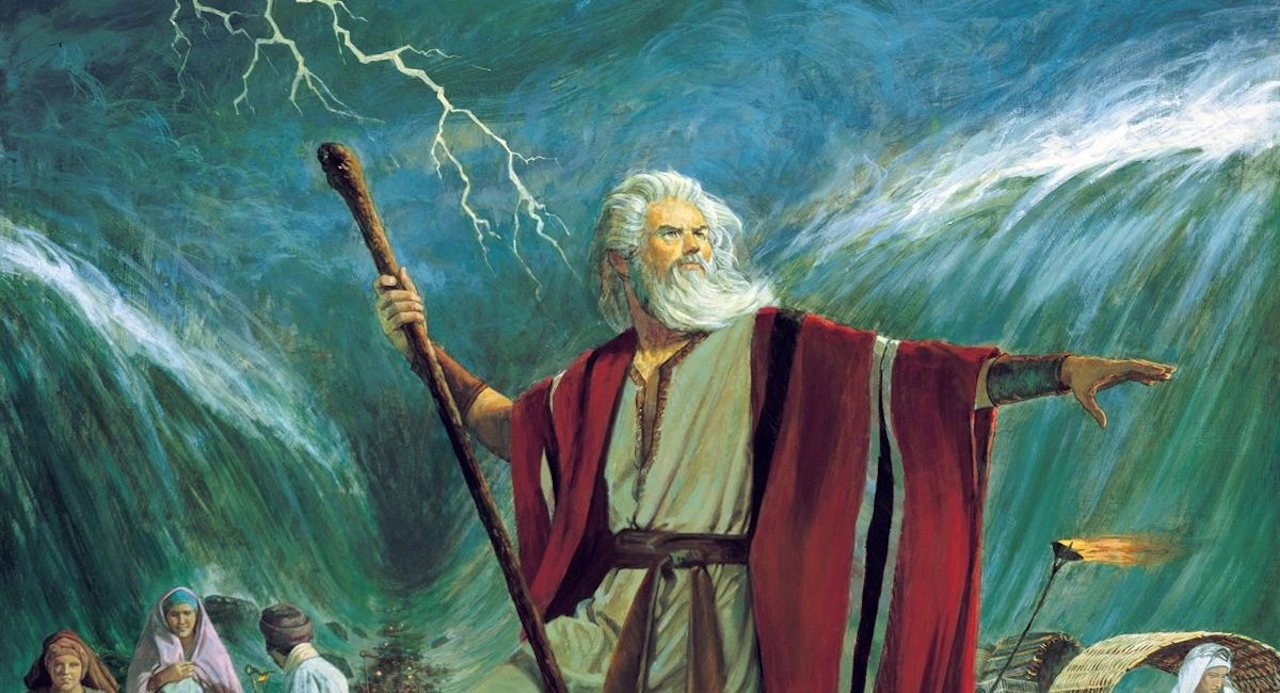In the tapestry of biblical history, few figures stand as prominently as Moses—the chosen leader, lawgiver, and prophet tasked with guiding the Israelites through a transformative journey of liberation and covenant. The story of Moses, set against the backdrop of ancient Egypt and the wilderness, is a saga of divine calling, human frailty, and unwavering faith.
I. Early Life: A Child in Peril
Moses' narrative begins in the perilous circumstances of his birth. Born to Hebrew parents during a time when Pharaoh had ordered the killing of male Hebrew infants, Moses' life starts in the shadow of oppression. His mother, driven by love and desperation, places him in a basket on the Nile, where he is discovered and adopted by Pharaoh's daughter.
II. The Prince of Egypt: A Life of Privilege and Identity Struggle
Raised as an Egyptian prince, Moses enjoys a life of privilege and education. However, an innate awareness of his Hebrew heritage and a confrontation with the injustice faced by his people create an inner turmoil. This identity struggle sets the stage for Moses' pivotal role in the liberation of the Israelites.
III. The Burning Bush: Encounter with the Divine
Moses' life takes a dramatic turn when, in the solitude of the wilderness, he encounters a burning bush that does not consume itself. In this extraordinary moment, God speaks to Moses, revealing His divine name and commissioning him to lead the Israelites out of Egypt. The burning bush becomes a symbol of the divine presence and the call to a sacred mission.
IV. The Plagues and the Exodus: A Display of Divine Power
Armed with the divine mandate, Moses confronts Pharaoh, demanding the release of the Israelites. The narrative unfolds with a series of plagues—each a demonstration of God's power over the Egyptian gods. The culmination is the Passover, where the blood of the lamb protects the Israelites from the final plague, leading to the Exodus—the liberation from slavery.
V. The Red Sea Crossing: Miraculous Deliverance
As the Israelites escape Egypt, they find themselves trapped between the pursuing Egyptian army and the Red Sea. In an iconic moment, God, through Moses, parts the waters, allowing the Israelites to cross on dry ground. The pursuing army is swallowed by the sea, affirming divine intervention and the miraculous deliverance of God's people.
VI. The Covenant on Mount Sinai: Divine Law and Guidance
The journey to Mount Sinai becomes a turning point in Moses' leadership. Here, he receives the Ten Commandments and other laws, establishing the covenant between God and the people of Israel. Moses serves not only as a lawgiver but also as an intermediary between the divine and the human, offering guidance, settling disputes, and fostering the spiritual growth of the community.
VII. Challenges and Tests: Navigating the Wilderness
Moses' leadership is not without challenges. The Israelites grumble and rebel, testing Moses' patience and trust in God. Despite moments of frustration, Moses remains faithful, interceding on behalf of the people and seeking God's guidance in times of crisis.
VIII. The Promised Land: A Vision Unfulfilled
One of the poignant aspects of Moses' story is his longing for the Promised Land, a land flowing with milk and honey. Despite leading the Israelites to the brink of the land, Moses, due to a divine decree, is not permitted to enter. This unfulfilled vision becomes a symbol of both the consequences of disobedience and the transcendence of God's purposes.
IX. Legacy: Moses, the Prophet and Lawgiver
Moses' legacy extends beyond the Exodus narrative. He is revered as a prophet, the recipient of divine revelations, and a foundational figure in Judaism, Christianity, and Islam. The Ten Commandments, delivered through Moses, stand as a moral and ethical compass for millions around the world.
X. Reflection: Lessons from Moses' Journey
Moses' journey offers timeless lessons—about divine calling, leadership, faith, and the complexities of human nature. His life reflects the transformative power of answering God's call, even when faced with personal inadequacies and the challenges of leading a diverse and often rebellious community.
XI. Moses, the Man of God
In the annals of biblical history, Moses emerges as a central figure—a man chosen to lead God's people through the wilderness of bondage to the threshold of freedom. His story is one of profound significance, a testament to the enduring relationship between the divine and the human—a relationship that shapes destinies and leaves an indelible mark on the pages of sacred scripture.




